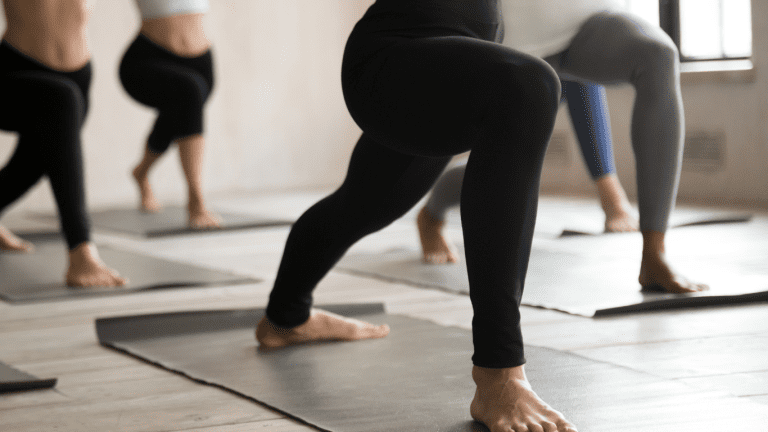An Ultimate Wellness Guide For Beginners
In the bustling rhythm of modern living, it’s easy to neglect the essence of well-being and find ourselves caught up in the chaos of daily life. However, taking care of our health is crucial for a fulfilling and balanced lifestyle. Understanding how to nurture your well-being across different facets of life is the first step towards a happier and healthier you. This comprehensive guide is your ally, offering essential wellness tips and practices tailored for beginners. So, let’s dive in and embark on a journey towards ultimate wellness.
Image source: Pexels
1. Incorporate a Hormonal Boost in Your Diet
Hormones play a pivotal role in regulating numerous body functions and maintaining overall health. By incorporating sermorelin peptide, a bioidentical synthetic hormone peptide, in your diet, you can increase your body’s natural production of human growth hormone (HGH). This boost in HGH levels can help improve muscle mass, decrease body fat, and enhance overall energy levels.
Beginners looking to incorporate a hormonal boost into their diet should consider consulting with a healthcare provider to determine the safest and most effective approach. This can include a balance of natural foods known to support hormonal health, like fatty fish, avocados, nuts, and seeds. Supplements and peptides like sermorelin should only be taken under professional guidance to ensure they complement your wellness journey without adverse effects.
2. Find Your Mind-Body Connection
The mind-body connection is a fundamental aspect of overall wellness, emphasizing the powerful interplay between mental and physical health. Engaging in practices that foster this connection can lead to heightened self-awareness, reduced stress, and an improved sense of well-being. Activities such as yoga, meditation, and tai chi are excellent for enhancing this connection, as they combine physical movement with mindfulness and deep breathing.
They enable us to quiet our thoughts, focus on our bodily sensations, and cultivate a state of mental clarity. For beginners, starting with short, guided sessions can help ease into the practice, making it a natural and beneficial part of daily life. Ultimately, strengthening the mind-body connection empowers us to lead more balanced and harmonious lives.
3. Prioritize Quality Sleep
Quality sleep is crucial for overall wellness. It restores and rejuvenates the body, improves cognitive function, and supports emotional well-being. As a beginner, aim for 7-9 hours of sleep each night. Create a comfortable and relaxing bedroom environment by limiting screen time before bed, keeping the room cool and dark, and establishing a consistent sleep schedule.
If you struggle with getting quality sleep, consider incorporating stress-reducing practices such as meditation or deep breathing exercises into your nighttime routine. Additionally, avoiding caffeine and heavy meals close to bedtime can also improve the quality of your sleep.
4. Make Time for Physical Activity
Regular physical activity is essential for maintaining a healthy body and mind. It helps boost energy levels, reduce the risk of chronic diseases, and improve overall mood. As a beginner, finding an exercise routine that works for you can be challenging. Still, it’s crucial to start slow and gradually increase intensity and duration as your fitness level improves.
Incorporating different types of physical activity, such as cardiovascular exercises, strength training, and flexibility exercises, can provide a well-rounded workout. It’s also important to listen to your body and not push yourself too hard, as this can lead to injuries and burnout. Aim for at least 30 minutes of moderate-intensity exercise most days of the week.
5. Cultivate Healthy Habits
Sustainable wellness is all about incorporating healthy habits into your daily life. This can include a balanced and nutritious diet, regular exercise, adequate sleep, and stress management techniques. Making small changes to your routine can have a significant impact on your overall well-being. For example, instead of reaching for sugary snacks when feeling stressed, try practicing deep breathing or going for a walk.
Additionally, incorporating self-care practices like taking baths, reading a book, or spending time in nature can also help promote overall wellness. Remember to be patient and kind with yourself as you develop healthy habits, as it takes time and consistency for them to become ingrained.
6. Build Positive Habits and Routines
Building positive habits and routines can help create structure and balance in our lives. It also allows for the intentional time dedicated to self-care and wellness practices. This can include setting aside time each day for exercise, preparing nutritious meals, practicing mindfulness, or simply taking a break from technology.
Creating a routine that works for you may take some trial and error, but ultimately, it should be tailored to your needs and preferences. Building positive habits and routines can help promote a sense of control and stability in our lives, leading to improved overall well-being.
Wellness is personal and multifaceted. Focus on what feels right as you begin this journey. Experiment with different activities and strategies. Remember, it’s about progress, not perfection. Patience and persistence are key to a harmonious well-being. For beginners, start small and be consistent. Take short walks, meditate for five minutes daily, or keep a gratitude journal. These tiny habits can transform your wellness journey.







